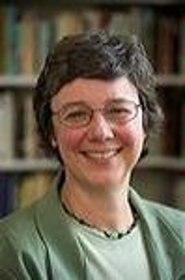
Professor of English Margaret Thickstun presented a paper at the 2007 Conference on John Milton, sponsored by the Department of English at Middle Tennessee State University, Murfreesboro, Tenn., on October 25-27.
Her paper "Resisting Patience in Milton's Sonnet 19" addressed the problem of creating a sense of closure in a lyric that resists its own message. In the poem, the speaker's complaints about how God is not being fair to him are interrupted by an intrusive voice, called "Patience," who tells him what the appropriate devotional attitude ought to be. By introducing this other voice (which closes the poem), Milton is able represent Patience's message without pretending that it is palatable or that the speaker accepts it: the speaker is silenced, not persuaded. That is a courageous artistic decision, because Milton's contemporaries—and, Thickstun believes, Milton himself—would understand religious lyric as an object intimately connected to devotional practice and as an authentic performance of the self.
Stephen Orlando '08 also had a paper accepted but was unable to attend the meeting. His paper was about the process of turning the first book of Paradise Lost into graphic novel form, which he did as an independent project during his sophomore year.
Her paper "Resisting Patience in Milton's Sonnet 19" addressed the problem of creating a sense of closure in a lyric that resists its own message. In the poem, the speaker's complaints about how God is not being fair to him are interrupted by an intrusive voice, called "Patience," who tells him what the appropriate devotional attitude ought to be. By introducing this other voice (which closes the poem), Milton is able represent Patience's message without pretending that it is palatable or that the speaker accepts it: the speaker is silenced, not persuaded. That is a courageous artistic decision, because Milton's contemporaries—and, Thickstun believes, Milton himself—would understand religious lyric as an object intimately connected to devotional practice and as an authentic performance of the self.
Stephen Orlando '08 also had a paper accepted but was unable to attend the meeting. His paper was about the process of turning the first book of Paradise Lost into graphic novel form, which he did as an independent project during his sophomore year.
Posted October 26, 2007
